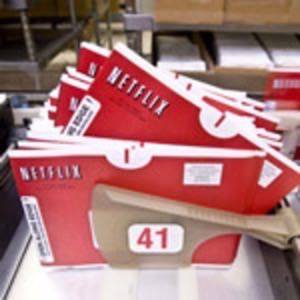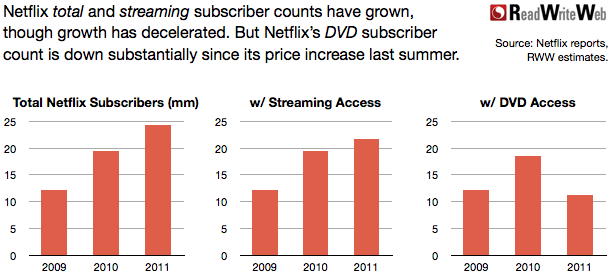It’s easy to slam Hollywood for not understanding how technology works, or for putting its legacy business models ahead of user experience. Especially when big media companies do things like restrict digital access to movies and then cry about piracy.

But Hollywood isn’t always acting alone. Sometimes, the savviest Web companies around – Netflix, for instance – are playing along, with their own agendas.
The latest example: Not only must Netflix customers wait 56 days before renting Warner Bros. new release discs, but they can’t even add them to their rental queues until 28 days after they’ve been released. Sounds a little nuts, no?
Hollywood’s goal with this wacky idea is to get you to buy those movies on DVD instead of renting them. Studios stand to make a lot more money by selling a DVD to each household instead of selling one copy to Netflix for a bunch of rentals. So now they’re in the business of messing with movie rentals using things like release delays and this new no-new-movies-in-your-queue policy.
Whether this plan sells more DVDs or not, it’s hard to escape the fact that Netflix’s user experience is suffering a bit because of it, and that seems like something Netflix should fight. But Netflix is actually on board!
Instead of telling Hollywood to get lost with silly ideas like this, Netflix is cooperating. It doesn’t have to buy DVDs directly from studios and play along with 28- or 56-day windows: Netflix can legally go out and buy DVDs anywhere – Walmart, Amazon, you name it – and rent them out as much as it wants. But it isn’t doing that. It’s playing along.
Why? A couple of reasons. To some extent, because it’s easier and more reliable for Netflix to buy discs directly from Warner Bros. instead of relying on third-party vendors. Netflix admits as much (PDF). But more importantly, because Netflix actually has the same goal that the studios do: To try to discourage you from renting DVDs.
The future of Netflix is 100% based on its ability to grow into the best streaming video entertainment service. Renting discs is very profitable for Netflix, but it’s the past. That’s why it went as far as to try separating its DVD business last year as “Qwikster,” and that’s why it’s letting studios make DVD rentals less attractive with windows and queue restrictions.
The sooner you get disgusted and cancel your DVD rental subscription, the stronger Netflix’s case to the studios becomes that they need streaming, or else.
So far, that isn’t really happening. An analysis by Tristan Louis shows that all of the top 100 movies from 2010 are available on DVD, but the vast majority aren’t available as streaming rentals. Netflix actually had the best streaming rental selection vs. iTunes, Amazon, or Vudu, according to Louis’s analysis, but it’s still only a small fraction of the top movies. Not yet good enough.
Netflix has been successful in its efforts to reduce its number of DVD subscribers, however, albeit with significant damage to its reputation.

At the end of 2011, Netflix had just 11 million DVD subscribers, down significantly from last year and well below its 22 million streaming subscribers. “We expect DVD subscribers to decline steadily every quarter forever,” Netflix CEO Reed Hastings said on the company’s Q4 earnings call last week (PDF transcript).
Assuming this trend continues, Netflix will be in a position to say to the studios: Look, the vast majority of our subscribers won’t be able to watch this movie unless you stream it. So stream it.
That might not work, anyway. There’s plenty of competition on the way for Netflix, ranging from Amazon, Apple and Google to the cable companies. And it will need to keep its edge using other techniques, too, such as obtaining exclusive and/or original programming. But this is the future Netflix is choosing, so it needs to try.
The takeaway: If you’re renting discs from Netflix now, expect more weirdness ahead.

















